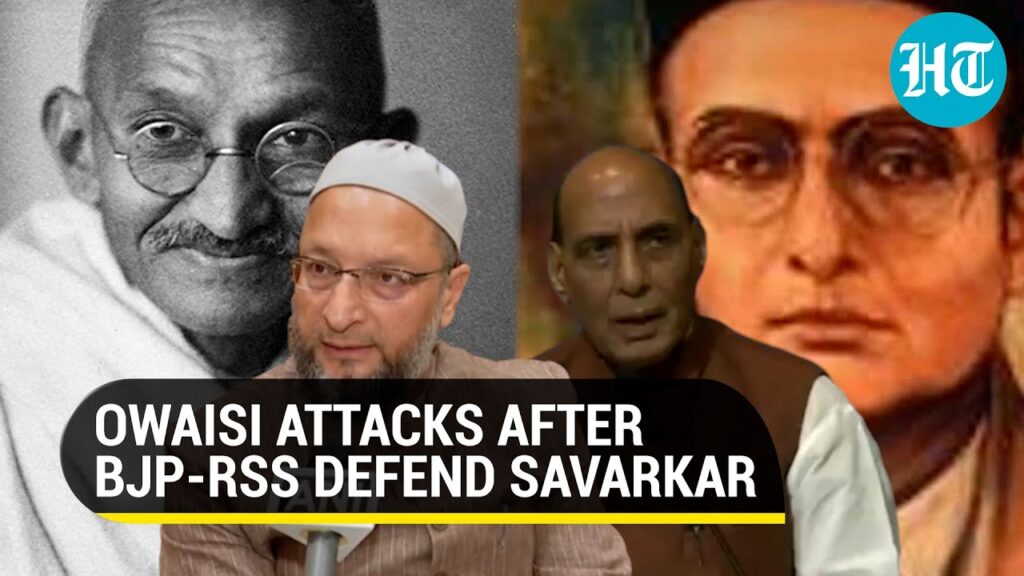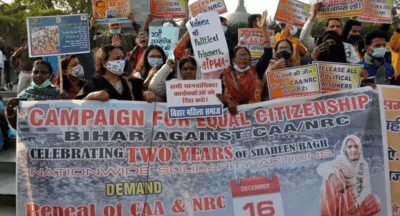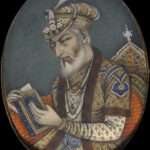AIMIM chief Asaduddin Owaisi’s recent comments targeting Hindutva ideologues Veer Savarkar and Madhav Sadashivrao Golwalkar have sparked a significant political controversy, drawing sharp reactions from the Bharatiya Janata Party and its allies.
Addressing a gathering in Hyderabad, Owaisi alleged that both Savarkar and Golwalkar had “abused” Chhatrapati Sambhaji Maharaj. He questioned Prime Minister Narendra Modi’s endorsement of the film ‘Chhawa’, which portrays Sambhaji’s life, despite considering Golwalkar his mentor. “Savarkar and Golwalkar had abused Sambhaji. Then, why does the Prime Minister Narendra Modi say that the movie ‘Chhawa’ is good, when he considers Golwalkar as his teacher?” Owaisi remarked, directly challenging the BJP’s ideological stance.
The BJP and its affiliates swiftly condemned Owaisi’s statements. Ranjit Savarkar, grandson of Veer Savarkar, dismissed the remarks as political stunts aimed at creating communal discord. He warned that such rhetoric should not be ignored, emphasizing that “Veer Savarkar made a significant contribution to this country. His services should not be viewed through the lens of any one religion.”
Shiv Sena leader Manisha Kayande also criticized Owaisi, accusing him of deliberately tarnishing Savarkar’s image. She urged Owaisi and his party to study history, highlighting that “some individuals deliberately create controversy around Savarkar.” Kayande further called on Uddhav Thackeray to distance himself from the Congress over such remarks, referencing the ongoing legal case against Congress leader Rahul Gandhi for similar comments.
In contrast, Congress MP Rashid Alvi supported Owaisi’s assertions, stating that Savarkar was not a religious man and that the BJP would not approve of his lifestyle. “Savarkar was not a religious man. Whatever Savarkar used to eat, what he used to drink, BJP would not be able to digest it,” Alvi commented, suggesting that the BJP’s veneration of Savarkar is selective and overlooks aspects of his personal life.
The controversy intensified as Owaisi criticized calls for Muslims to stay indoors or cover themselves during Holi celebrations, asserting the community’s resilience. “We will not run, we are not cowards. Those who were scared ran away to Pakistan,” he declared, responding to suggestions that Muslims should avoid public festivities during Holi.
Delhi Minister Manjinder Singh Sirsa refuted Owaisi’s allegations, stating that there are no restrictions on offering Namaz and defending the celebration of Holi. “As far as stopping someone from praying Namaz is concerned, that is neither our country’s culture nor our government’s thinking. However, if someone has a problem with Holi, then they should refrain from coming out, as Holi comes once a year,” Sirsa remarked, emphasizing the inclusive nature of India’s cultural practices.
This episode underscores the enduring sensitivity surrounding historical figures like Savarkar in India’s political discourse. While the BJP and its allies revere him as a patriot and freedom fighter, critics highlight contentious aspects of his ideology and actions. Owaisi’s remarks have reignited debates over historical interpretation, ideological ownership, and the politicization of India’s past.




 Right-Wing Groups Demand Demolition of Aurangzeb’s Tomb
Right-Wing Groups Demand Demolition of Aurangzeb’s Tomb 